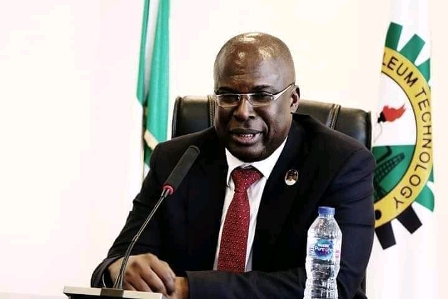The federal government of Nigeria is strategizing to ensure an efficient oil and gas sector in the post-COVID-19 era.
The nation’s Minister of State for Petroleum Resources, Chief Timipre Sylva made this known while presenting a keynote address at the 13th Annual International Conference of the National Association of Energy Economics (NAEE) in Abuja on Thursday.
The theme of the Conference is “Energy and Petroleum in the post-COVID-19 world’’
He explained: “Our strategy to strengthen the Nigerian oil and gas industry in a post-COVID-19 world is to transform our national oil company into a diversified energy holding company.
“This will enable us to respond swiftly to the twin challenges of a future crash in crude oil prices and decarbonization, by moving rapidly to becoming an energy holding company with more diverse interests.
“Consequently, we have strategically focused on our vast natural gas resources, as a critical transition fuel to help battle global warming and function as a bridge between the dominant fossil fuel of today and the renewable energy of tomorrow.
“Natural gas has the intrinsic ability to meet the increasing global requirement for cleaner primary energy use, while at the same time, enabling much needed domestic industrialization for rapid economic growth in very few endowed countries, such as Nigeria.’’.
Sylvia noted that substituting traditional white products with gas would cushion the effect of the deregulation of the downstream petroleum sector and stimulate economic growth.
He added that it would further improve Nigeria’s energy mix; drive investments and create enormous job opportunities for Nigeria.
“Recently,” he said, “we declare 2021 to 2030, the decades of gas in Nigeria, after making laudable achievements and successes in 2020.
“In order to effectively develop our gas sector, we have proposed fiscal incentives that would attract investments in the Petroleum Industry Bill, PIB. We can assure you that the fiscal provisions would be one of the most attractive in Africa.
“COVID-19 pandemic and progressive decline in crude oil prices in 2020, has made it imperative for Nigeria to aggressively pursue the diversification of its portfolio to non-oil businesses so as to cushion the effect of a future crash in crude oil prices and position the oil and gas industry for growth in a post-COVID world.”
The Minister further said that the post-COVID-19 world would see the oil and gas industry accelerate its transition towards cleaner energy sources, products, and service delivery and the clear paradigm shift from traditional business models.
“The Pandemic,” he pointed out, “has created a perfect storm that along with ongoing needs to reduce carbon emissions will transform the industry. The future survival and success of many in the industry depend not only on achieving cleaner energy sources but also the ability to deliver lower-cost solutions.’’
In her address, the National President of the NAEE, Prof. Yinka Omorogbe, also warned that the Nigerian petroleum industry might be negatively impacted by the COVID-19 pandemic, especially as the industry currently lacks the capacity to change and adapt to global trends.
According to her, Nigeria presently stands at a critical moment as a petroleum-dependent nation. She added that there was an urgent need to critically understand and unravel energy and petroleum issues in a post-COVID-19 world and see how best the country could weather the inevitable storm.
“What is worrying ,” she said, “is that the Nigerian petroleum industry has so far exhibited a worrying incapacity to change and adapt, as evidenced by about 20 years of petroleum reform that has refused to even take the first step of enacting badly needed legislation.
“This is tragic because even before the COVID-19 pandemic, Nigeria had ceased to be a beautiful bride, several new producers were springing up in Africa, and all over the world and the green movement is becoming a reality.”
Also, Executive Secretary of the Petroleum Technology Development Fund, (PTDF), Dr. Bello Gusau, noted that the COVID-19 pandemic had significantly impacted its programmes, especially as most of its human capital development programmes were conducted overseas and through physical meetings.
Gusau, who was represented by General Manager, Strategic Planning of the PTDF, Mr. Jide Adebulehin, explained that in the second quarter of 2020, many of these programmes were severely disrupted due to physical distancing protocols and closure of airports among others. He said: “The prospect of declining revenue from oil, high inflation, high cost of materials, and the advent of a recession, has impacted the development of new infrastructural projects, and completion of ongoing projects is now at a very high cost.
“In addition, there has been reduced opportunity for industry stakeholders’ collaboration and linkages.
“However, to mitigate these challenges, the fund had to quickly review its operations to eradicate manual processes, to pave way for new automated flow work that is safer and efficient.
“It is necessary that as 2020 winds up, the various challenges should be considered as learning points for players in the petroleum industry.”
©Copyright MOTORING WORLD INTERNATIONAL.
All rights reserved. Materials, photographs, illustrations and other digital content on this website, may not be reproduced, published, broadcast, rewritten or redistributed in whole or in part without prior written permission from Motoring World International
Contact: [email protected]




